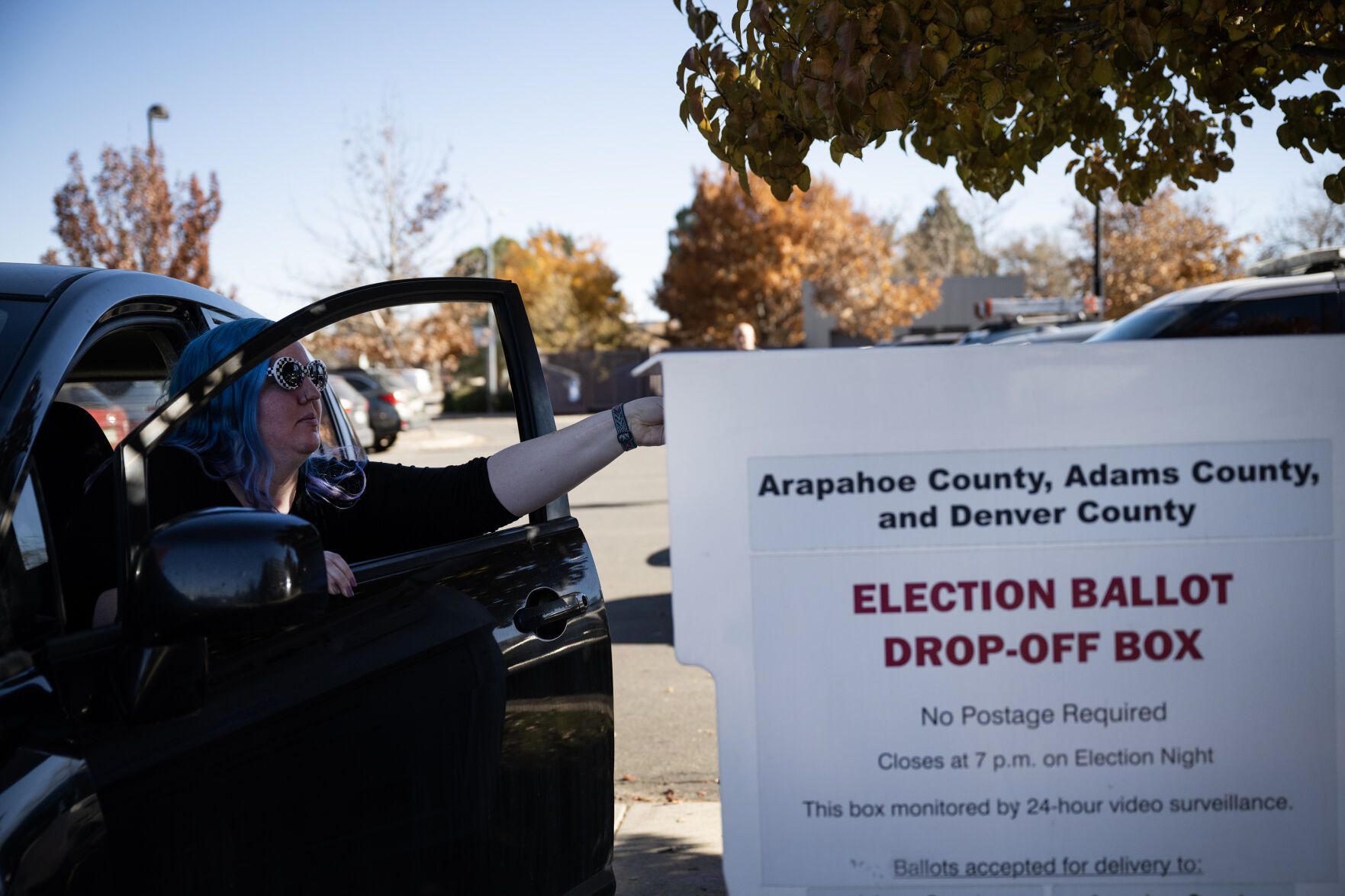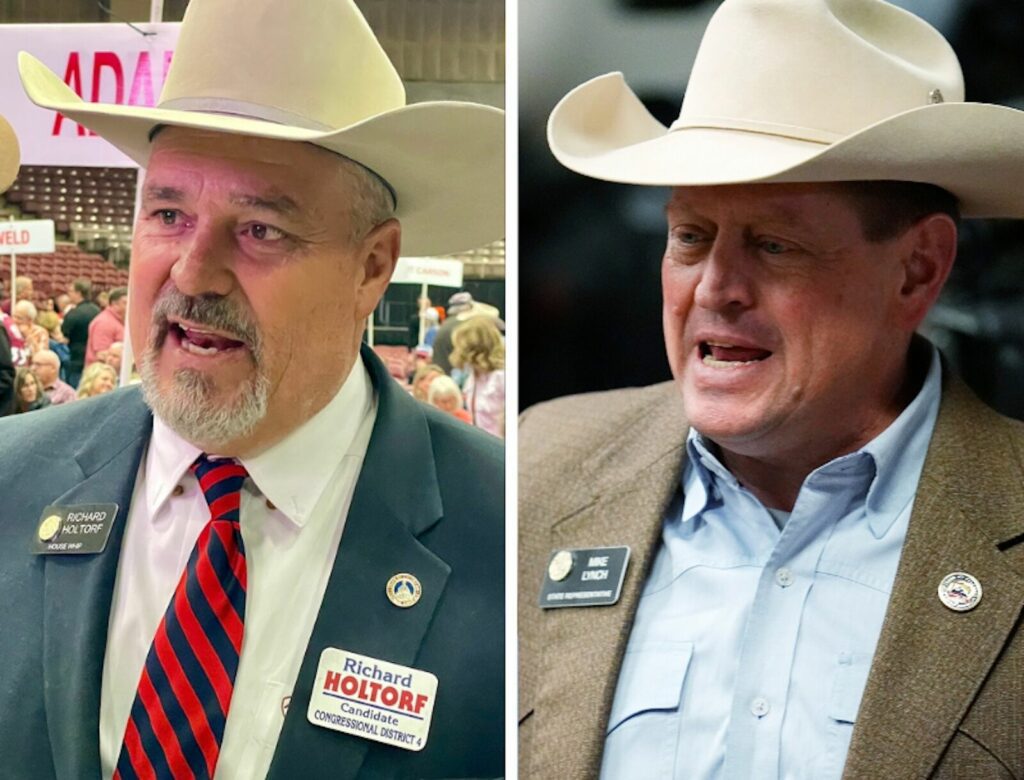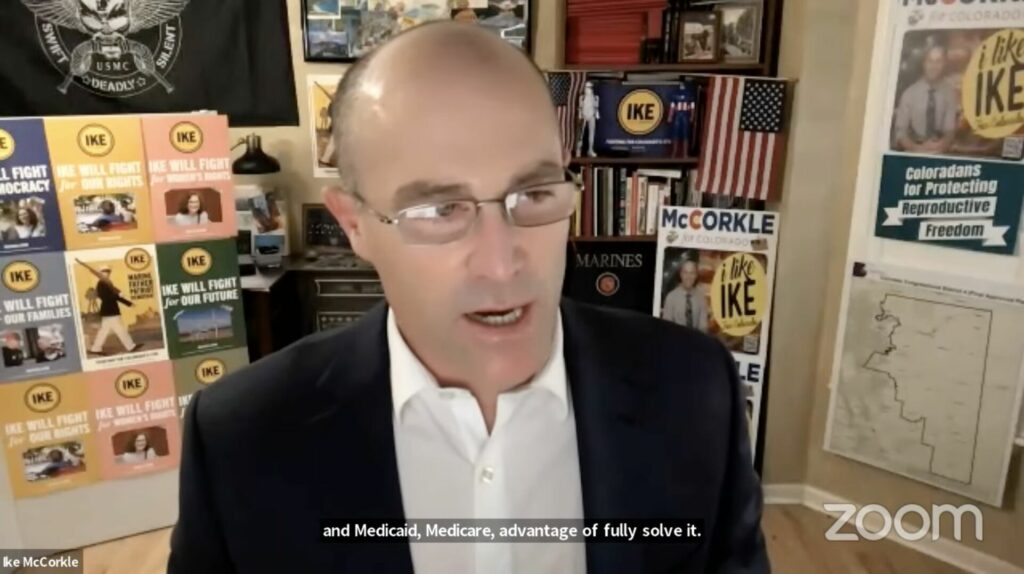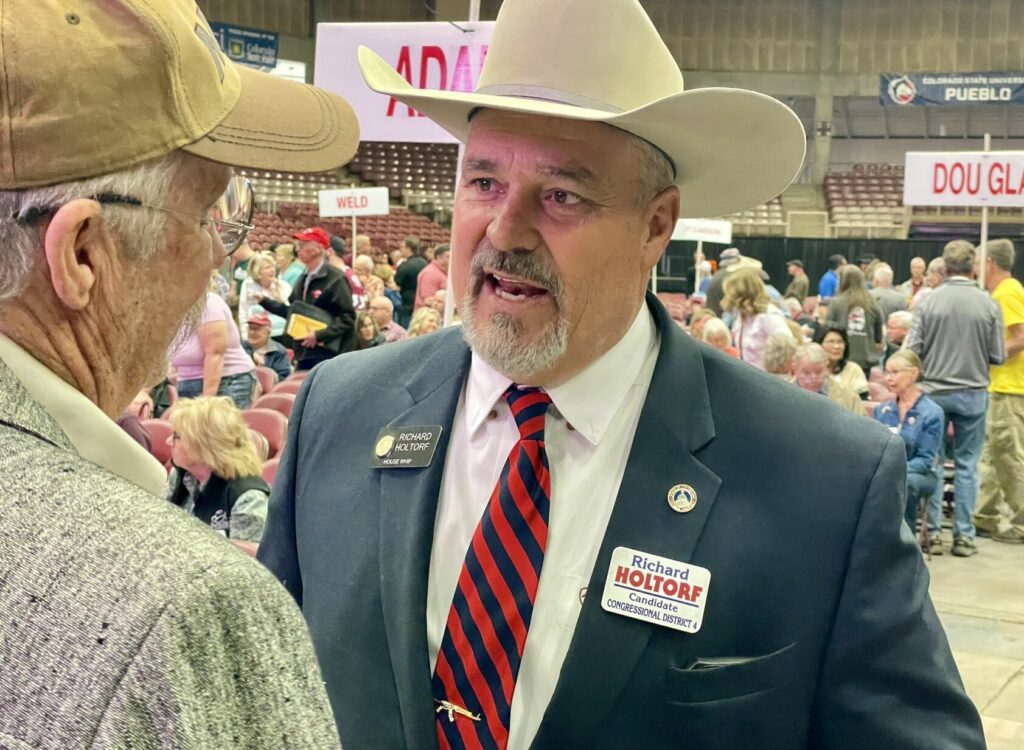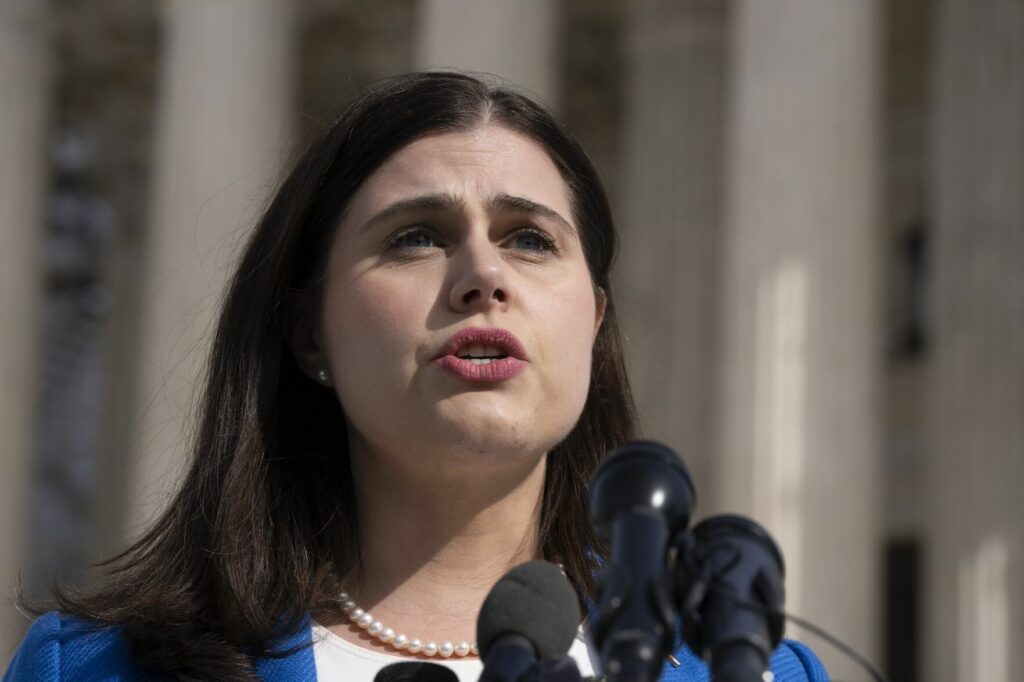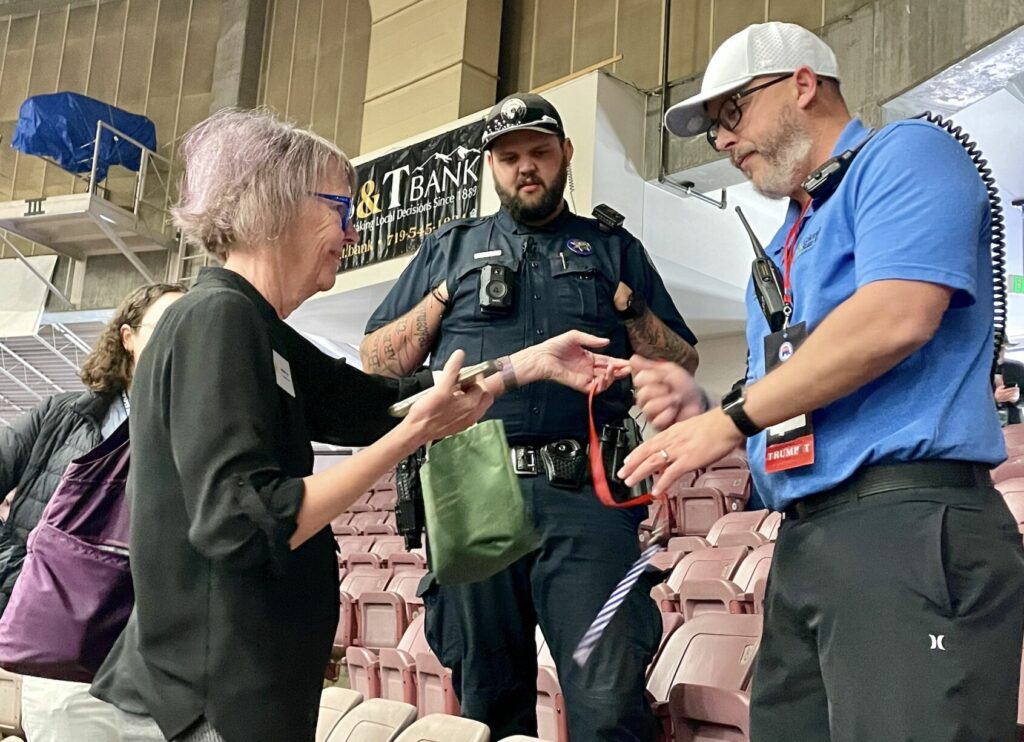Colorado GOP makes case to judge for barring unaffiliated voters from casting primary ballots
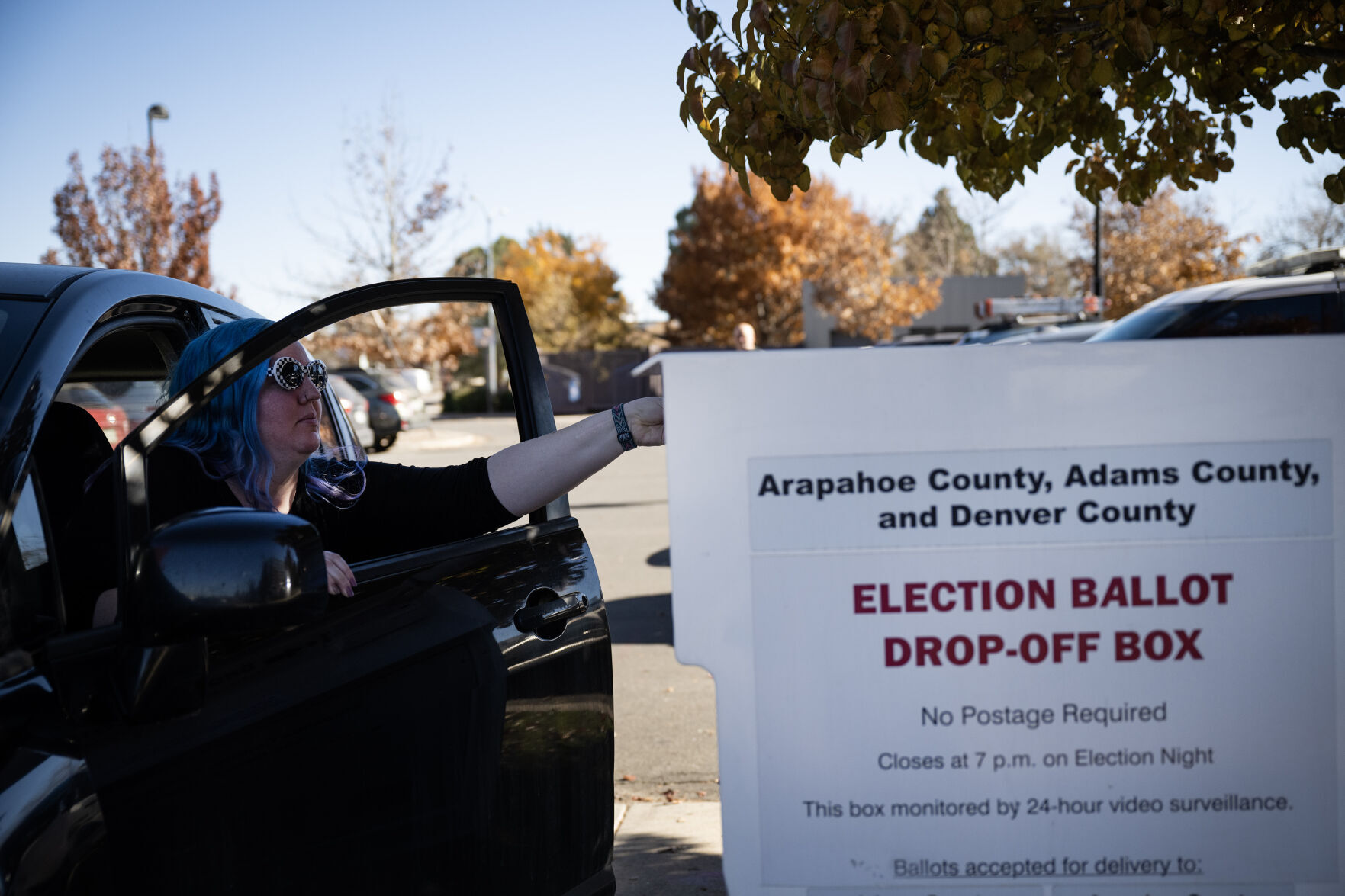
The Colorado Republican Party presented a series of witnesses in federal court on Tuesday in its effort to block unaffiliated voters from participating in the party’s primary elections, months after the GOP failed to secure enough support from its own members to close its nominating process to those who are not registered Republicans.
The defendant in the lawsuit, Secretary of State Jena Griswold, also solicited testimony about how a judge’s order excluding the single largest bloc of voters would have detrimental effects on Colorado’s election infrastructure, given that the March 5 presidential primary is already underway.
“It’s a lot of development time needed to ensure we don’t adversely affect the primary,” said Hilary Rudy, deputy elections director in Griswold’s office, who estimated it would take six to nine months to reconfigure the voting protocols for unaffiliated voters. “The counties can’t do any end-user testing right now because they’re actively conducting an election.”
In 2016, Colorado voters approved a pair of ballot initiatives: Proposition 107, which reestablished the March presidential primary and enabled unaffiliated voters to cast ballots for candidates, and Proposition 108, which allowed unaffiliated voters to cast a ballot in either the Republican or Democratic primaries in June for all other races. Proponents argued that allowing unaffiliated voters to participate in partisan primaries would make candidates more responsive to “a broader range of interests.”
Since then, the state’s Republican Party has attempted to opt out of the primary elections, with some conservatives bristling at the notion that non-party members would have a say in selecting the GOP’s candidates. The effort has been unsuccessful, with a 2023 vote of the party’s central committee resulting in only 65% support for the opt-out – short of the necessary 75% threshold.
Arguing its options under the law inhibited Republicans from effectively choosing Republican nominees, the GOP filed suit in federal court, seeking an injunction on the grounds that Prop 108, specifically, is unconstitutional.
“By excluding Plaintiff from its primary election system unless Plaintiff waives its constitutional right to exclude unaffiliated voters from its nomination process, Colorado has unduly deprived Plaintiff of an otherwise available benefit – the use of the State’s election infrastructure and resources,” wrote attorney John C. Eastman.
Eastman faces criminal charges in Georgia for his involvement in efforts to overturn the 2020 presidential election results, which Colorado courts have now deemed an insurrection.

The case is the second legal attempt at barring the roughly two million unaffiliated voters from the GOP primary in recent years. In 2022, U.S. District Court Senior Judge John L. Kane threw out a lawsuit brought by individual members of the party’s state central committee, ruling the party itself was the one who had standing to sue.
Kane, a Jimmy Carter appointee, also doubted the constitutional claims against Prop 108 could succeed, noting the secretary of state would need to drastically revamp the elections protocols and, moreover, there was not even sufficient support among the GOP’s membership to run a members-only primary election.
Colorado “has a legitimate interest in allowing and encouraging its largest political parties to increase voter participation in primary elections and to ensure administrative efficiency in the process. Proposition 108 is a reasonable way to accomplish the Secretary’s goals,” he wrote at the time.
With the GOP itself now as the plaintiff, U.S. District Court Chief Judge Philip A. Brimmer, a George W. Bush appointee, heard from multiple witnesses about why the party should be allowed to run a “closed primary” using state resources.
GOP Chair Dave Williams, a former state representative who is currently running to represent the 5th Congressional District in El Paso County, said filing suit to strike down Prop 108 was “more attractive” to the state party than operating a primary itself or nominating candidates via assembly, which would attract only a fraction of the state’s 900,000 active Republican voters.
“The opt-out isn’t something we want to do, but it’s the only choice that allows us to have some system where Republicans get to choose Republican nominees,” he testified.

Trent England, who runs the pro-Electoral College group Save Our States and who previously worked at the conservative Heritage Foundation, testified that political parties have already grown weaker over the past several decades. Allowing non-party members to select candidates, he argued, could result in a party nominating someone whose ideology is not substantially different from their opponent in a general election.
“If you can have the primary benefit of political party membership – which is a voice in who that party nominates for office – without affiliating with that political party,” he said, “that further diminishes the role of parties.”
“If you have non-members selecting the leadership or spokespeople for your party, in terms of candidates, does it leave any purpose for the organization?” asked the GOP’s lawyer, Randy B. Corporon, who also represents Colorado on the Republican National Committee.
“People want a say within a political party?” responded England. “They should participate in the political party.”

On cross-examination, England acknowledged the Colorado Republican Party is free to select its leadership solely from within its ranks, endorse candidates and spend funds to support whomever it wants. He also admitted that data showing unaffiliated voters’ participation in a primary election would not illustrate whether they actually swing the election toward one candidate or another.
“You haven’t provided any evidence that since the passage of Proposition 108, there has been a successful effort to organize voters to vote in the Republican primary in Colorado to elect a weaker candidate, correct?” asked Assistant Attorney General Talia Kraemer.
“Not specifically,” said England.
The government called as a witness Suzanne Taheri, the former chair of the Arapahoe County GOP and a 2020 Republican state Senate candidate. Taheri did not support the effort to close the party’s primary to unaffiliated voters and said the central committee “routinely” holds votes that surpass 75% approval.
“Given that the Republican Party can control how it runs its meetings and how votes can be cast,” asked Olivia Probetts of the attorney general’s office, “if the political will was present, could the Republican Party meet the 75% threshold to opt out of the semi-open primary?”
“Yes,” said Taheri.
Finally, Rudy, the deputy elections director, said it took the state 1,500 hours to change its voting system after Prop 108 enabled unaffiliated voters to participate in the major parties’ primaries. She testified she did not believe it was possible to successfully modify the protocols for the GOP if Brimmer were to order changes during the 2024 election.
The hearing will continue on Wednesday.
The case is Colorado Republican Party v. Griswold.
